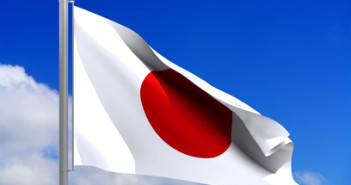The Bank of Japan ended their policy meeting last evening and they unanimously voted to keep interest rates and asset purchases unchanged. Â This decision was made after the previous two months had seen an expansion of the asset buying program by the BOJ. Â For the time being, the asset purchase size stayed at JPY 66 trillion, while credit lending remained at JPY 25 trillion. Â The next meeting of the BOJ will take place on December 20, which is four days after the general election.
That election is likely to see Shinzo Abe elected as the new prime minister.  He has called for unlimited easing and has wanted to place restrictions on central bank independence.  These comments had weakened the JPY in the past few days.  After the BOJ meeting, Governor Masaaki Shirakawa called Abe’s proposals to weaken the JPY unrealistic.  He told reporters that the BOJ’s independence should be respected, and that unlimited printing of money, ie., easing, would cause great damage.  These comments and the BOJ move have seen the USD/JPY move slightly lower in overnight trading.  The USD/JPY is currently trading in the middle of its overnight range at 81.28.
Further reading: USD/JPY at 7 Month High – Could be in Overbought Territory
The EUR has traded above and below the 1.2800 level as traders digest the news that Moody’s has cut France’s rating by one grade to Aa1 from Aaa yesterday and maintained their outlook on the country as negative.  Moody’s claimed “deteriorating economic prospects†due to “subdued domestic an external demand†coupled with uncertainties in France’s fiscal outlook as reasons for the downgrade.
More: Kick ‘em when they’re down
European finance ministers are meet today in Paris to discuss the ongoing Greek fiscal problems.  The “troika†meets tomorrow.  There are reports that “lengthening maturities on Greece’s debt and lowering rates on Greece’s bailout loans†as the main topics being discussed.  While German finance minister Schaeuble has stated that no final decision will be made, there are rumors a tentative approval of EUR 55 billion will be made.
On the commodity side, Gold continues to rally and has now gotten major investors to increase their holdings.  According to analysts, Gold, will rise every quarter in 2013 and reach an average of $1,925 in the final 3 months.  According to Securities and Exchange Commission filings, investors such as John Paulson and George Soros have increased their gold positions.  As central banks all over the world pledge more steps to boost growth, which raises concern about inflation and currencies losing value, investors are turning towards gold.  Adding to the purchases are concerns over the US fiscal cliff.  While talks are moving along at a good pace, there is the chance that the US falls into recession if spending cuts and tax rises aren’t resolved.
The RBA released minutes from their November meeting. Â The minutes showed the RBA viewed the current rate of 3.25% as appropriate but also signaled there was room for further easing. Â If the RBA does not cut in December, the next meeting in March will probably have a rate cut. Â The RBA does not meet in January and February. Â AUD has traded around the 1.0400 level in overnight trading.
USD/CAD remains pressured and has attempted the .9950 support level, but has bounced from there and is currently trading in the .9970-75 area.
Overnight equity markets were lower and DOW Futures are negative indicating a lower opening to today’s US equity markets, after yesterday’s strong showing.
Currencies remain range bound and there is no reason to expect anything different for today. Traders are looking at an abbreviated trading week and no major moves are expected.



